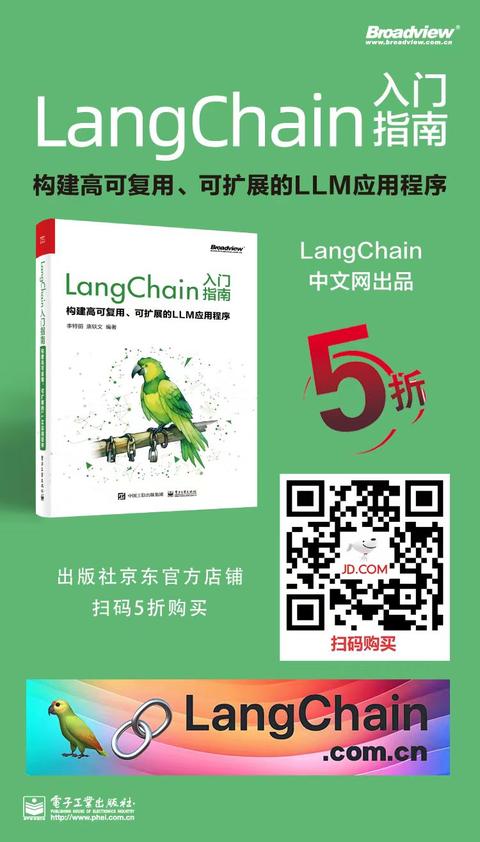缓存
嵌入可以存储或临时缓存,以避免需要重新计算它们。
缓存嵌入可以使用 CacheBackedEmbeddings 来完成。缓存支持的嵌入器是一个包装器,它在一个键值存储中缓存嵌入。
文本被哈希处理,哈希值用作缓存中的键。
初始化 CacheBackedEmbeddings 的主要支持方式是 from_bytes_store。它接受以下参数:
- underlying_embedder: 用于嵌入的嵌入器。
- document_embedding_cache: 用于缓存文档嵌入的任何
ByteStore。 - batch_size: (可选,默认为
None)在存储更新之间要嵌入的文档数量。 - namespace: (可选,默认为 ``)用于文档缓存的命名空间。此命名空间用于避免与其他缓存的冲突。例如,将其设置为所使用的嵌入模型的名称。
- query_embedding_cache: (可选,默认为
None或不缓存)用于缓存查询嵌入的ByteStore,或True以使用与document_embedding_cache相同的存储。
注意:
- 确保设置
namespace参数,以避免使用不同嵌入模型嵌入相同文本时发生冲突。 CacheBackedEmbeddings默认不缓存查询嵌入。要启用查询缓存,需要指定query_embedding_cache。
<!--IMPORTS:[{"imported": "CacheBackedEmbeddings", "source": "langchain.embeddings", "docs": "https://python.langchain.com/api_reference/langchain/embeddings/langchain.embeddings.cache.CacheBackedEmbeddings.html", "title": "Caching"}]-->
from langchain.embeddings import CacheBackedEmbeddings
与向量存储一起使用
首先,让我们看一个使用本地文件系统存储嵌入并使用FAISS向量存储进行检索的示例。
%pip install --upgrade --quiet langchain-openai faiss-cpu
<!--IMPORTS:[{"imported": "LocalFileStore", "source": "langchain.storage", "docs": "https://python.langchain.com/api_reference/langchain/storage/langchain.storage.file_system.LocalFileStore.html", "title": "Caching"}, {"imported": "TextLoader", "source": "langchain_community.document_loaders", "docs": "https://python.langchain.com/api_reference/community/document_loaders/langchain_community.document_loaders.text.TextLoader.html", "title": "Caching"}, {"imported": "FAISS", "source": "langchain_community.vectorstores", "docs": "https://python.langchain.com/api_reference/community/vectorstores/langchain_community.vectorstores.faiss.FAISS.html", "title": "Caching"}, {"imported": "OpenAIEmbeddings", "source": "langchain_openai", "docs": "https://python.langchain.com/api_reference/openai/embeddings/langchain_openai.embeddings.base.OpenAIEmbeddings.html", "title": "Caching"}, {"imported": "CharacterTextSplitter", "source": "langchain_text_splitters", "docs": "https://python.langchain.com/api_reference/text_splitters/character/langchain_text_splitters.character.CharacterTextSplitter.html", "title": "Caching"}]-->
from langchain.storage import LocalFileStore
from langchain_community.document_loaders import TextLoader
from langchain_community.vectorstores import FAISS
from langchain_openai import OpenAIEmbeddings
from langchain_text_splitters import CharacterTextSplitter
underlying_embeddings = OpenAIEmbeddings()
store = LocalFileStore("./cache/")
cached_embedder = CacheBackedEmbeddings.from_bytes_store(
underlying_embeddings, store, namespace=underlying_embeddings.model
)
在嵌入之前缓存是空的:
list(store.yield_keys())
[]
加载文档,将其拆分为块,嵌入每个块并将其加载到向量存储中。
raw_documents = TextLoader("state_of_the_union.txt").load()
text_splitter = CharacterTextSplitter(chunk_size=1000, chunk_overlap=0)
documents = text_splitter.split_documents(raw_documents)
创建向量存储:
%%time
db = FAISS.from_documents(documents, cached_embedder)
CPU times: user 218 ms, sys: 29.7 ms, total: 248 ms
Wall time: 1.02 s
如果我们尝试再次创建向量存储,它会快得多,因为不需要重新计算任何嵌入。
%%time
db2 = FAISS.from_documents(documents, cached_embedder)
CPU times: user 15.7 ms, sys: 2.22 ms, total: 18 ms
Wall time: 17.2 ms
这里是一些创建的嵌入:
list(store.yield_keys())[:5]
['text-embedding-ada-00217a6727d-8916-54eb-b196-ec9c9d6ca472',
'text-embedding-ada-0025fc0d904-bd80-52da-95c9-441015bfb438',
'text-embedding-ada-002e4ad20ef-dfaa-5916-9459-f90c6d8e8159',
'text-embedding-ada-002ed199159-c1cd-5597-9757-f80498e8f17b',
'text-embedding-ada-0021297d37a-2bc1-5e19-bf13-6c950f075062']
交换 ByteStore
为了使用不同的 ByteStore,只需在创建 CacheBackedEmbeddings 时使用它。下面,我们创建一个等效的缓存嵌入对象,但使用非持久的 InMemoryByteStore:
<!--IMPORTS:[{"imported": "CacheBackedEmbeddings", "source": "langchain.embeddings", "docs": "https://python.langchain.com/api_reference/langchain/embeddings/langchain.embeddings.cache.CacheBackedEmbeddings.html", "title": "Caching"}, {"imported": "InMemoryByteStore", "source": "langchain.storage", "docs": "https://python.langchain.com/api_reference/core/stores/langchain_core.stores.InMemoryByteStore.html", "title": "Caching"}]-->
from langchain.embeddings import CacheBackedEmbeddings
from langchain.storage import InMemoryByteStore
store = InMemoryByteStore()
cached_embedder = CacheBackedEmbeddings.from_bytes_store(
underlying_embeddings, store, namespace=underlying_embeddings.model
)

